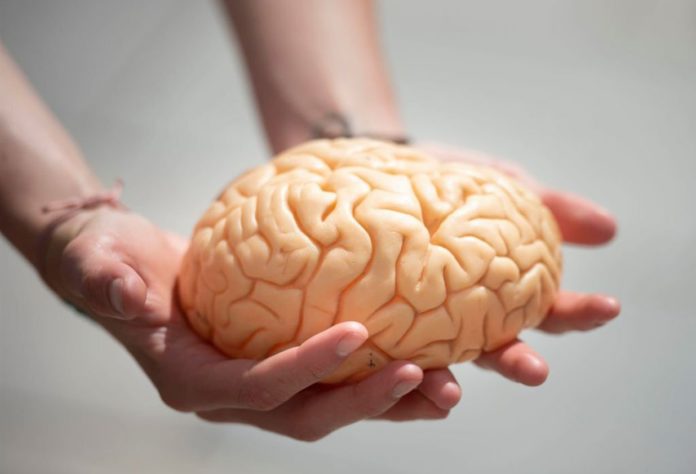Despite the fact that we frequently underestimate our sense of smell in comparison to our senses of sight and hearing, it is important for our brain to be able to identify things like smoke and recognize pleasant smells like baking cookies.
The University of Chicago Medicine researchers have found yet another reason to thank our noses. If a person’s sense of smell gets worse over time, it can be a sign that they are losing cognitive function. It can also be a sign of structural changes in parts of the brain that are important in Alzheimer’s disease and dementia.
The results, which came from a long-term study of 515 older adults and were published in Alzheimer’s & Dementia: The Journal of the Alzheimer’s Association, could lead to the development of a smell-test screening to find cognitive impairment in patients earlier.
Senior author Jayant M. Pinto, an expert in olfactory and sinus disease, said that the study “provides another clue to how a rapid decline in the sense of smell is a really good indicator of what’s going to end up structurally occurring in specific regions of the brain.”
Alzheimer’s disease is thought to affect more than 6 million people in the U.S. It causes memory loss and other problems, such as changes in mood and trouble doing everyday things. The signs of Alzheimer’s disease cannot be reversed with medication, however it can be slowed down for a time.
Researchers have known for a long time that the sense of smell is linked to dementia and that memory is a key part of being able to recognize smells. Plaques and tangles, which are signs of Alzheimer’s disease, often start in areas of the brain that deal with smell and memory before spreading to other parts of the brain. It isn’t clear if this injury causes a person’s sense of smell to deteriorate.
This study was designed to find out if changes in the brain could be linked to deterioration in a person’s sense of smell or cognitive abilities over time.
“Our idea was that people with a rapidly declining sense of smell over time would be in worse shape,” adds lead author Rachel Pacyna, “and more likely to have brain problems and even Alzheimer’s itself –than people who were slowly declining or maintaining a normal sense of smell,”
The team used patient data from Rush University’s Memory and Aging Project (MAP), which was started in 1997 to study long-term conditions that come with getting older and neurodegenerative diseases like Alzheimer’s. Participants in the MAP are senior citizens living in retirement or senior housing communities in Northern Illinois. They undergo annual testing for a variety of health conditions, including the capacity to recognize specific odors, cognitive function, and dementia symptoms. Some of the people also had an MRI scan.
Scientists at UChicago Medicine discovered that a rapid decline in a person’s sense of smell during a time when they were thinking normally predicted multiple signs of Alzheimer’s disease, such as less gray matter in the parts of the brain that control smell and memory, worse thinking, and a higher risk of dementia in older adults. As it turns out, carrying the APOE-e4 gene, a well-known genetic risk factor for Alzheimer’s, raises a person’s risk of losing their sense of smell.
The key olfactory regions, which include the amygdala and entorhinal cortex and are a major input to the hippocampus, a crucial area in Alzheimer’s disease, showed the most dramatic abnormalities.
“We were able to show,” adds Pinto, “that the volume and shape of grey matter in olfactory and memory-associated areas of the brains of people with the rapid decline in their sense of smell were smaller compared to people who had a less severe olfactory decline.”
The gold standard for determining whether someone has Alzheimer’s is an autopsy, and Pinto intends to someday expand on these discoveries by searching for Alzheimer’s disease markers in brain tissue. The team also wants to investigate the efficacy of employing smell testing in clinics, much to how vision and hearing tests are done, to screen and monitor older persons for early dementia symptoms and to create new treatments.
Smell tests are a simple, affordable item that come in the form of a number of sticks that resemble felt-tip pens. Each stick contains a unique aroma that participants must choose from a list of four options to identify.
“If we could identify people in their 40s, 50s and 60s who are at higher risk early on,” adds Pacyna, “we could potentially have enough information to enroll them into clinical trials and develop better medications.”
Due to the fact that only one MRI scan was performed on each participant, researchers were unable to determine when structural changes in the brain began or how quickly certain regions diminished.
“We have to take our study in the context of all of the risk factors that we know about Alzheimer’s,” adds Pinto, “including the effects of diet and exercise,”
“Sense of smell and change in the sense of smell,” according to Pinto, “should be one important component in the context of an array of factors that we believe affect the brain in health and ageing.
Further investigation is required to establish whether underrepresented populations are similarly impacted because the majority of MAP participants were white. Previous research by the team revealed clear racial inequalities, with the most significant impairment in smell function being experienced by African Americans.
Previous research by Pinto looked at the sense of smell as a crucial indicator of deteriorating health in older persons. In his 2014 research, he found that older persons without a sense of smell had a threefold higher risk of passing away within five years, making it a stronger predictor of death than a diagnosis of cancer, heart failure, or lung disease.
Image Credit: Getty
You were reading: New Dementia Study Finds Another Clue to Alzheimer’s disease – Could be an Early Warning Sign
